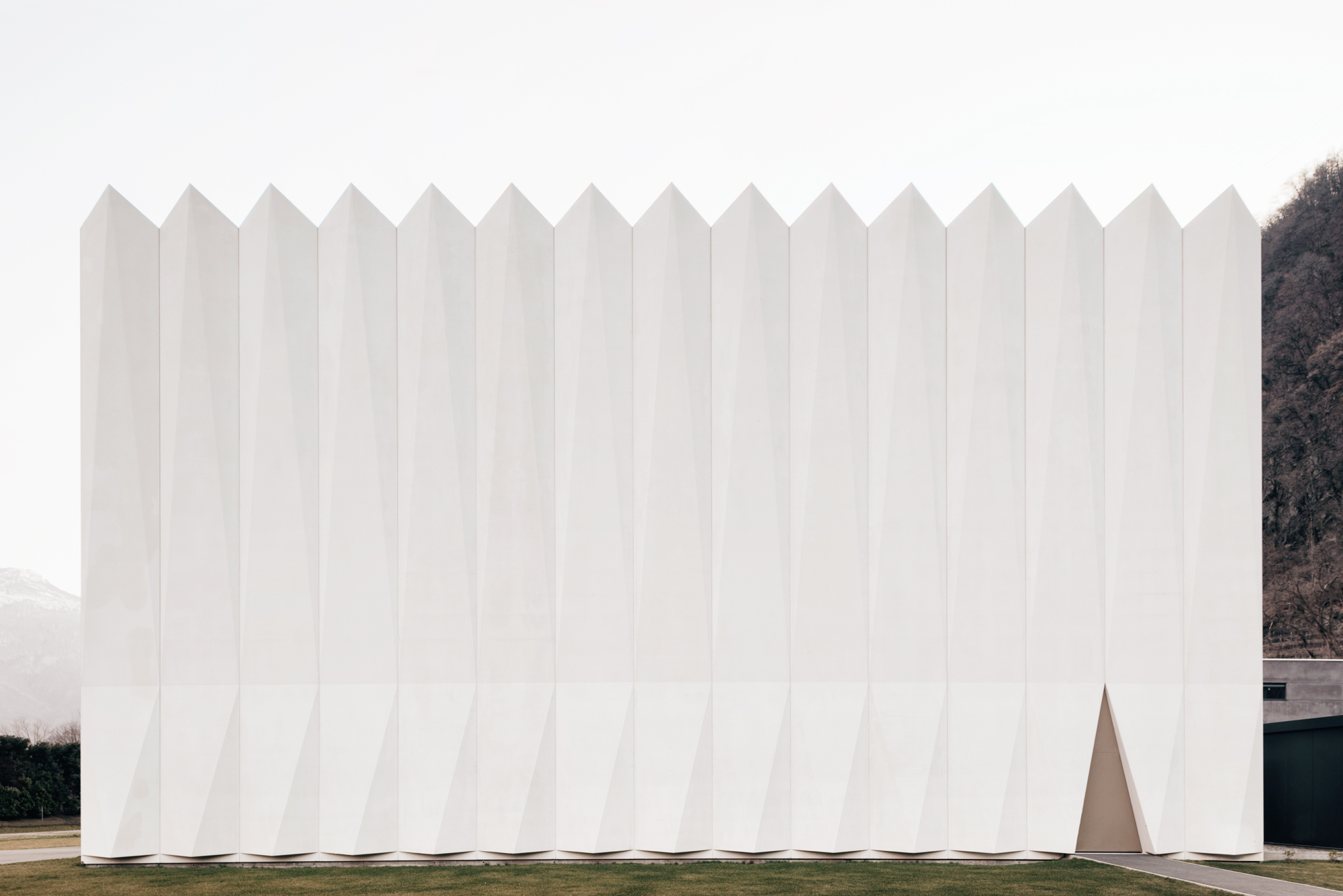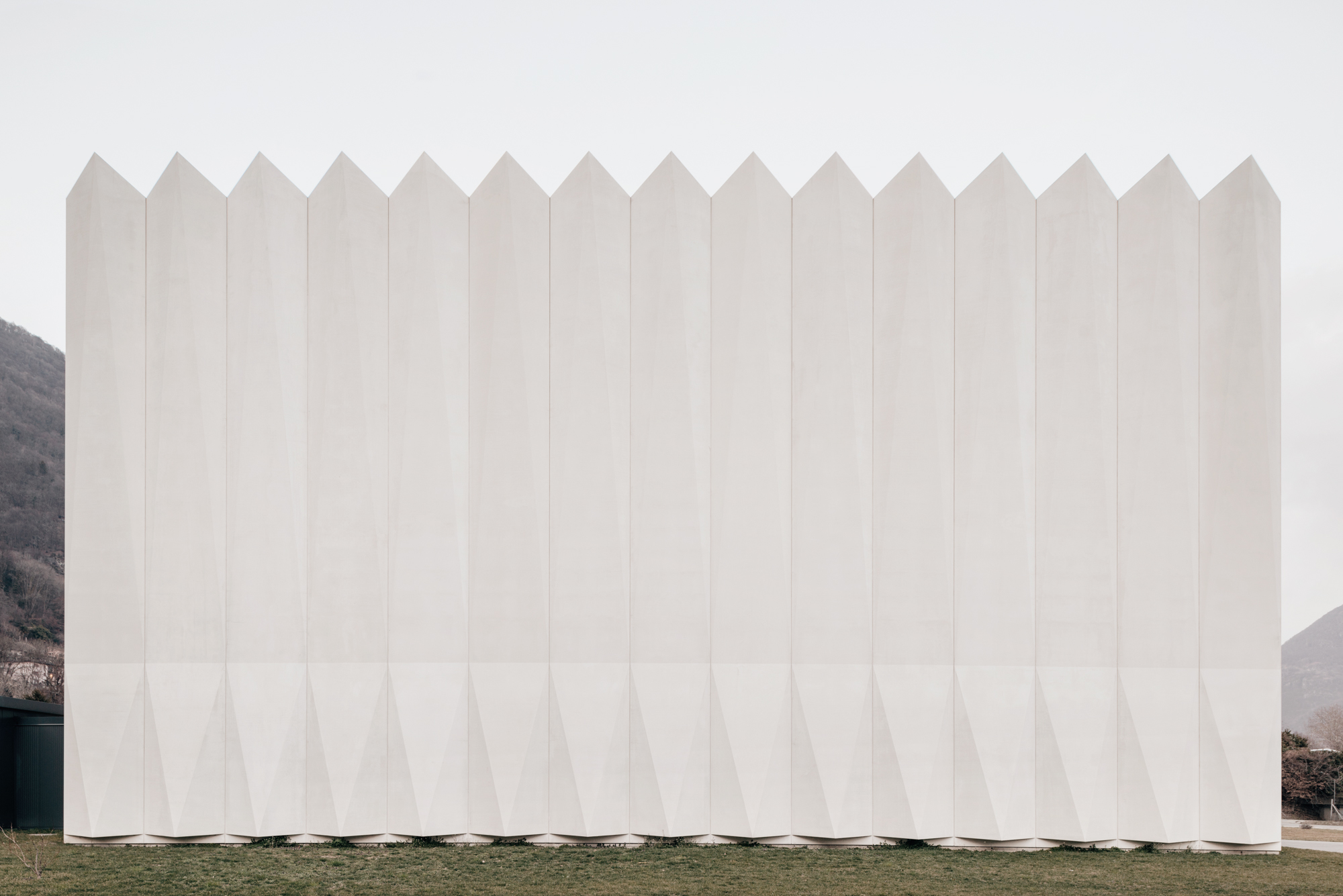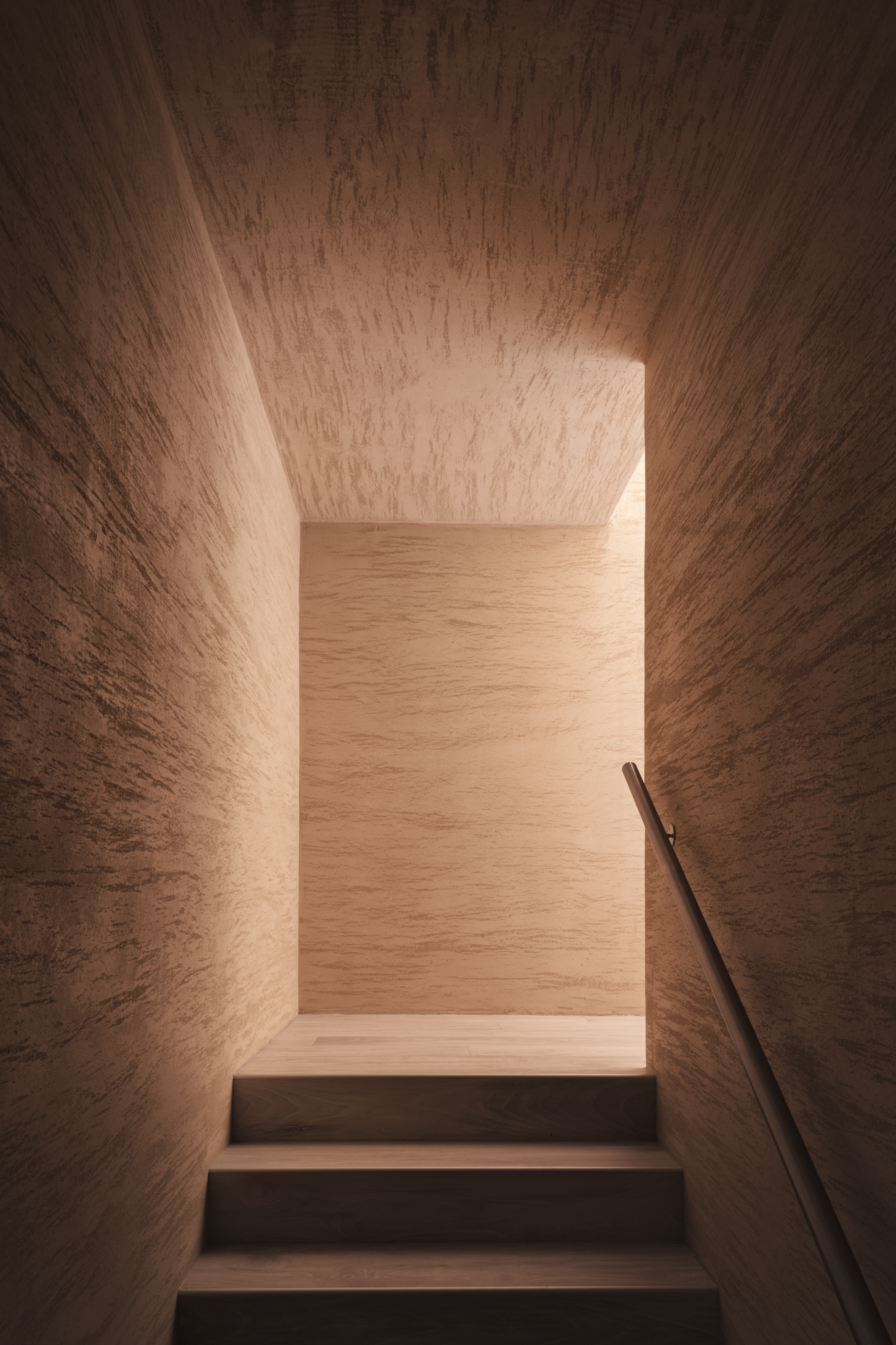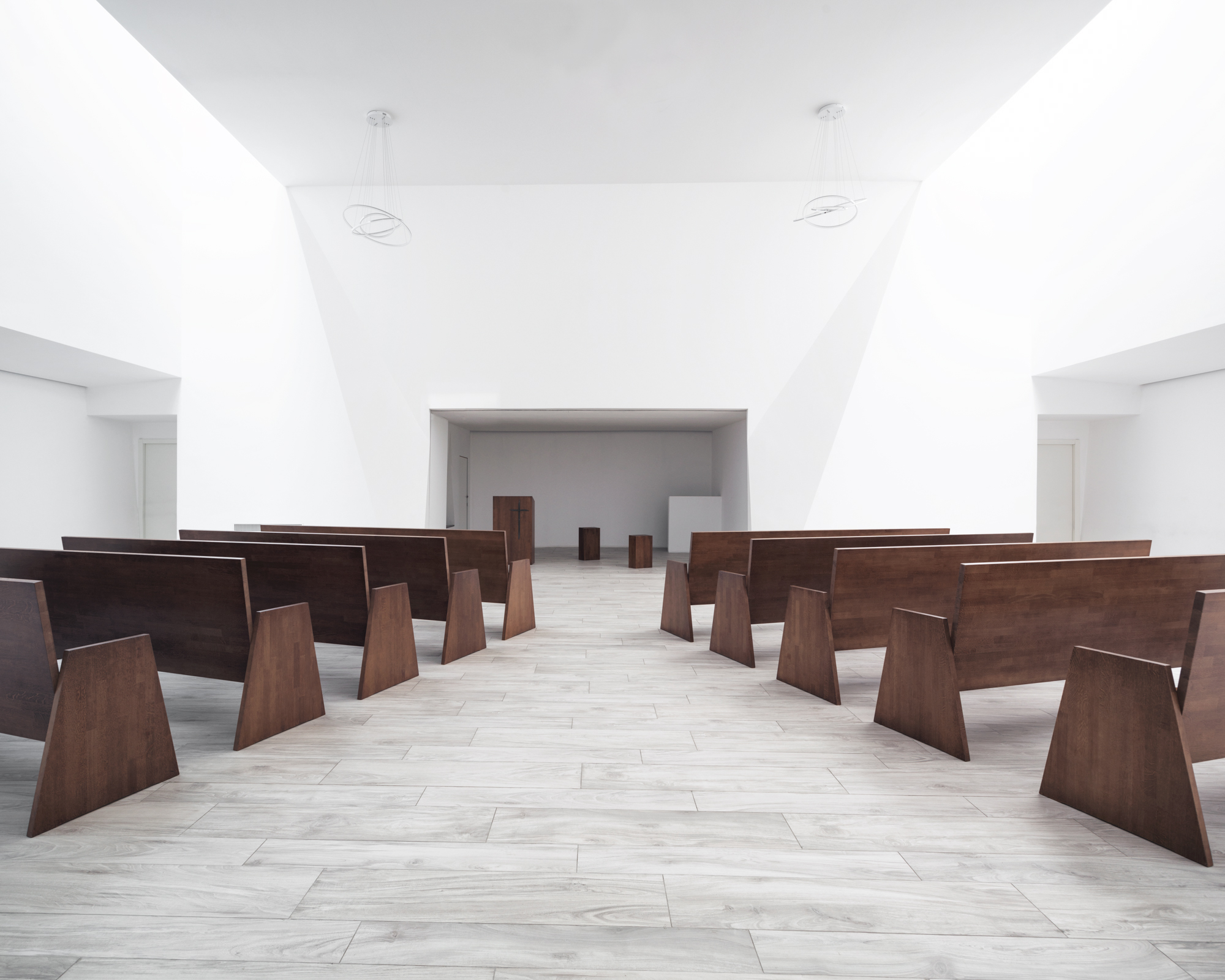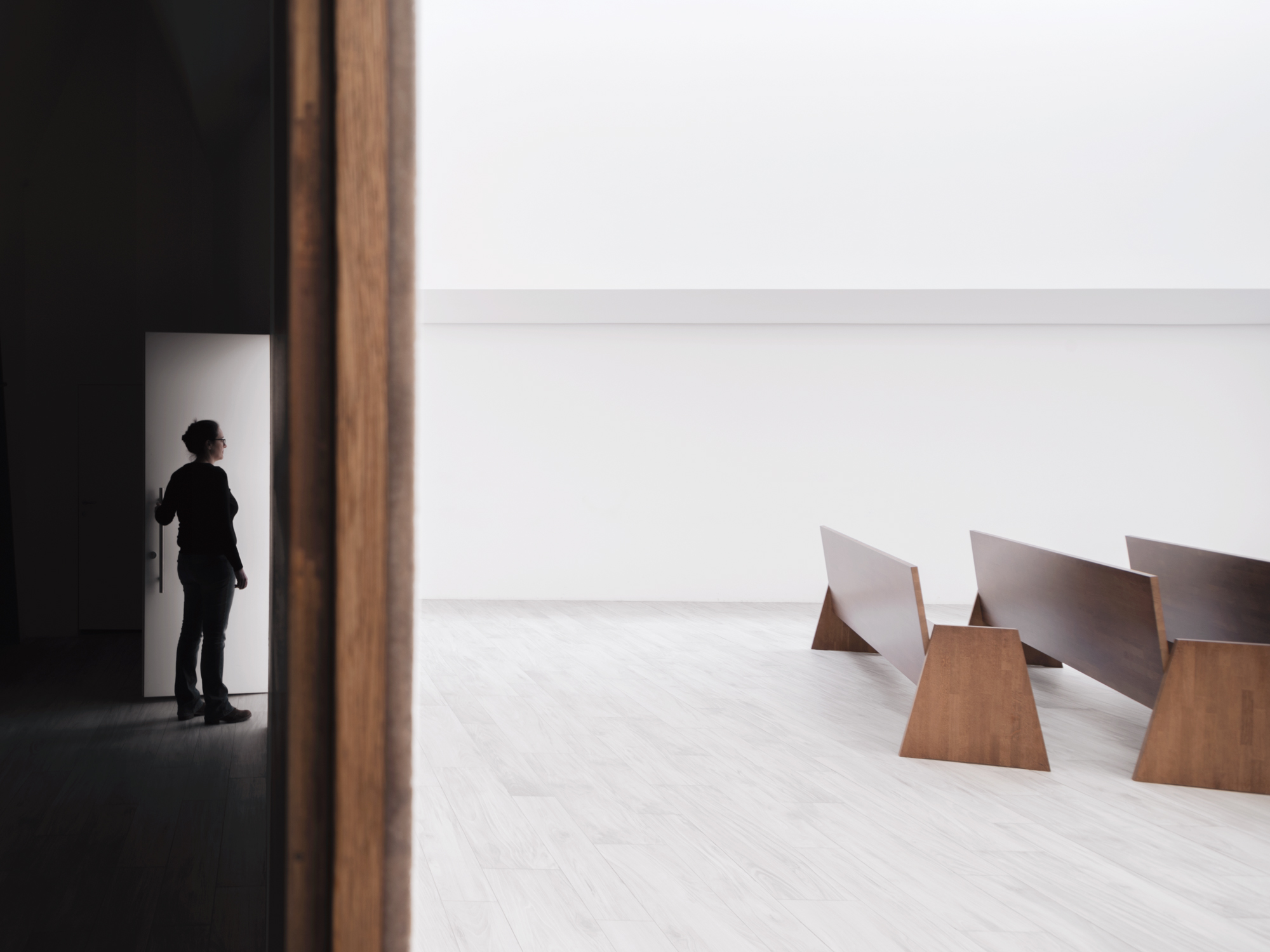CAFUBE - Casa funeraria del bellinzonese
In the search for
the intrinsic beauty of the architectural object, connubial of pure and
functional, the containing silence, the ephemeral that comes to life, the pain
and calm that embrace this building in one, highlight the contrast with an
architecture monumental whose massive character, heaviness, austerity, balance
and functional coherence are the masters. The joint and certainty that guides
the whirlwind of ideas that enveloped this project was its functional
coherence, which is accompanied by the complicit and creative light of a new
balance.
The object rests
on the ground, aspiring to the sky, in a combination of heavy load-bearing
internal skeleton wrapped externally by a candid origami of slabs with a light
and suspended appearance. This diaphanous and clean skin, chiseled in a linear
and rhythmic way by triangulations and pure geometric shapes, comes to life and
interrogates the observer through the light, which creeps into the slits and
creates shadows that change over time.
The building thus
becomes a sundial of a time that is not real and tangible, but that refers to
the times of man and life, of the experiences that follow one another in a day
and that are reborn at sunrise.
The monumentality
and austerity of this architectural typology is also reflected in the
distribution of the internal environments, vertical distribution through a
stairwell and lift, and in the articulation of these environments that respect
the natural turn of the deceased's body's preparation practice.
The attention of
the designer shifts and focuses on the discretion and complete dissimulation of
the interventions and mechanisms that exist hidden from the visitor's sight.
Thus, two
distinct design lines are configured that parallel public atmospheres, of
recollection and ceremony, with technical spaces linked to the profession.
The visitor's
welcome consists of a reception whose candid color is a direct reflection of
the envelope, and whose choice of materials is dictated by the desire to create
a tension-free passage from outside to inside. The main rooms that interest the
visitor and on which the designers' gaze has lingered for a long time are made
up of three small rooms on the second floor which overlook the main hall on the
ground floor. The three rooms are suitable to welcome the deceased in an
immediate, intimate and collected way. The light that permeates the envelope
outside permeates the glass surface of the skylights and delicately blends with
the internal atmosphere. This same zenithal light is found in the main farewell
room, whose peculiarity lies in the wide breath allowed by the opening on a
double height.

